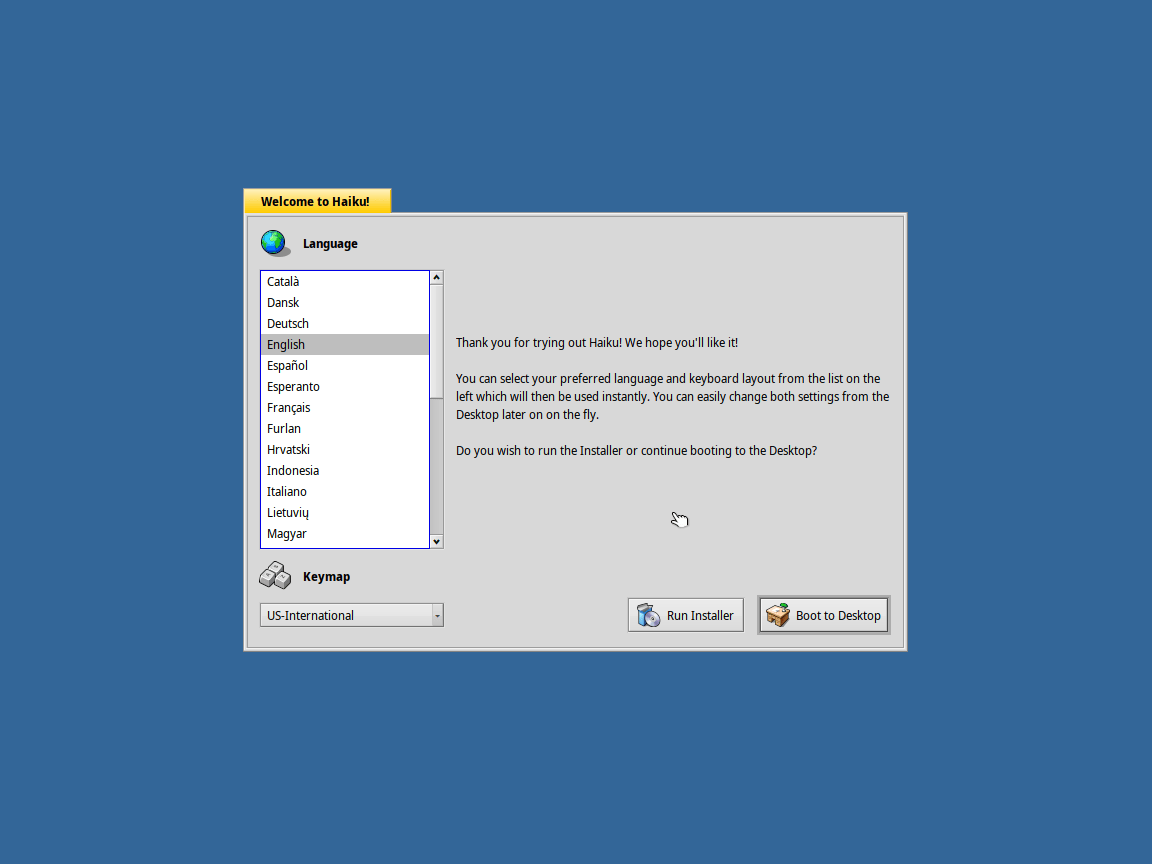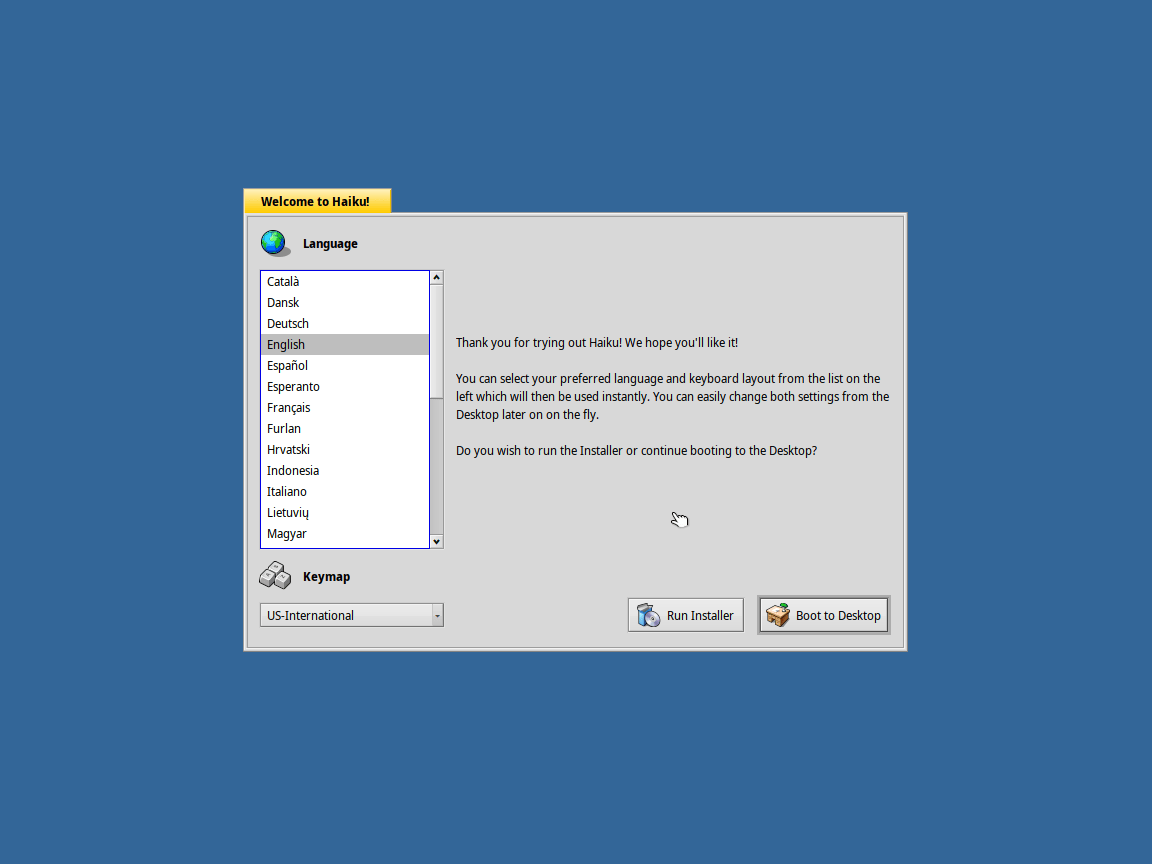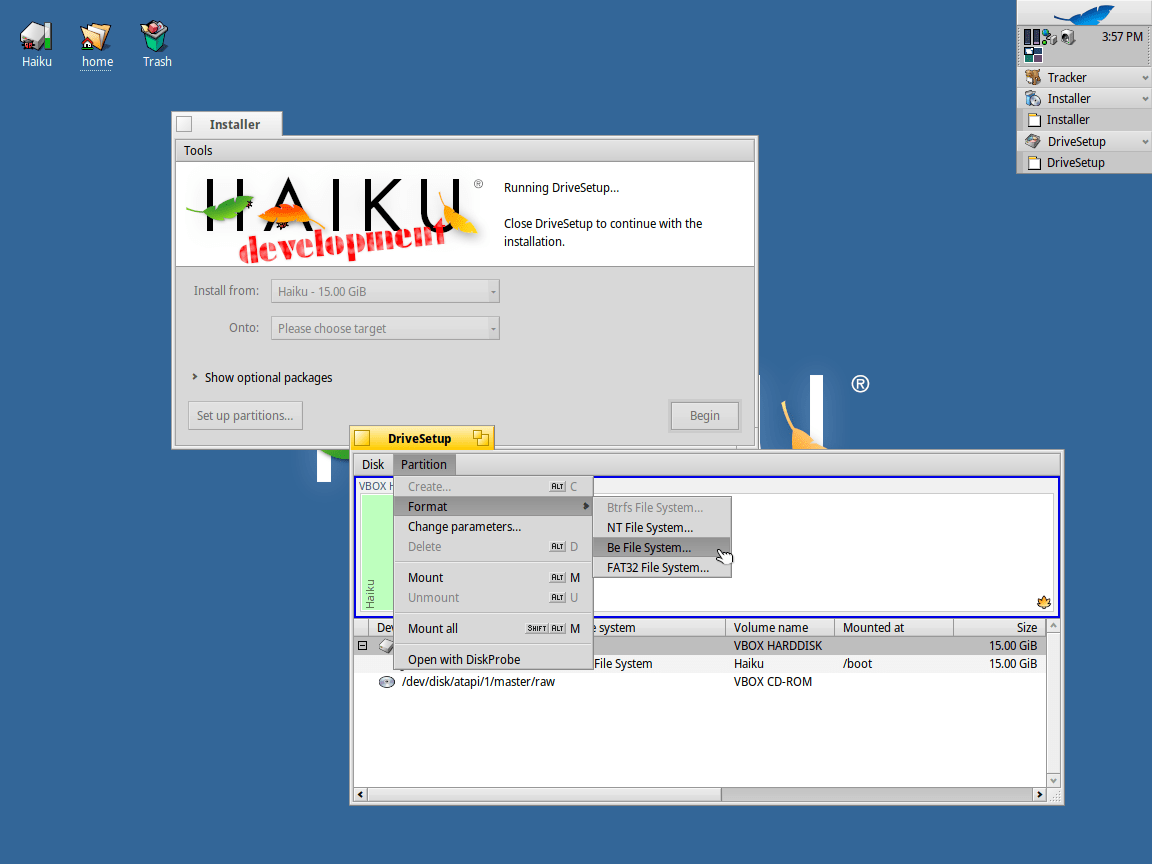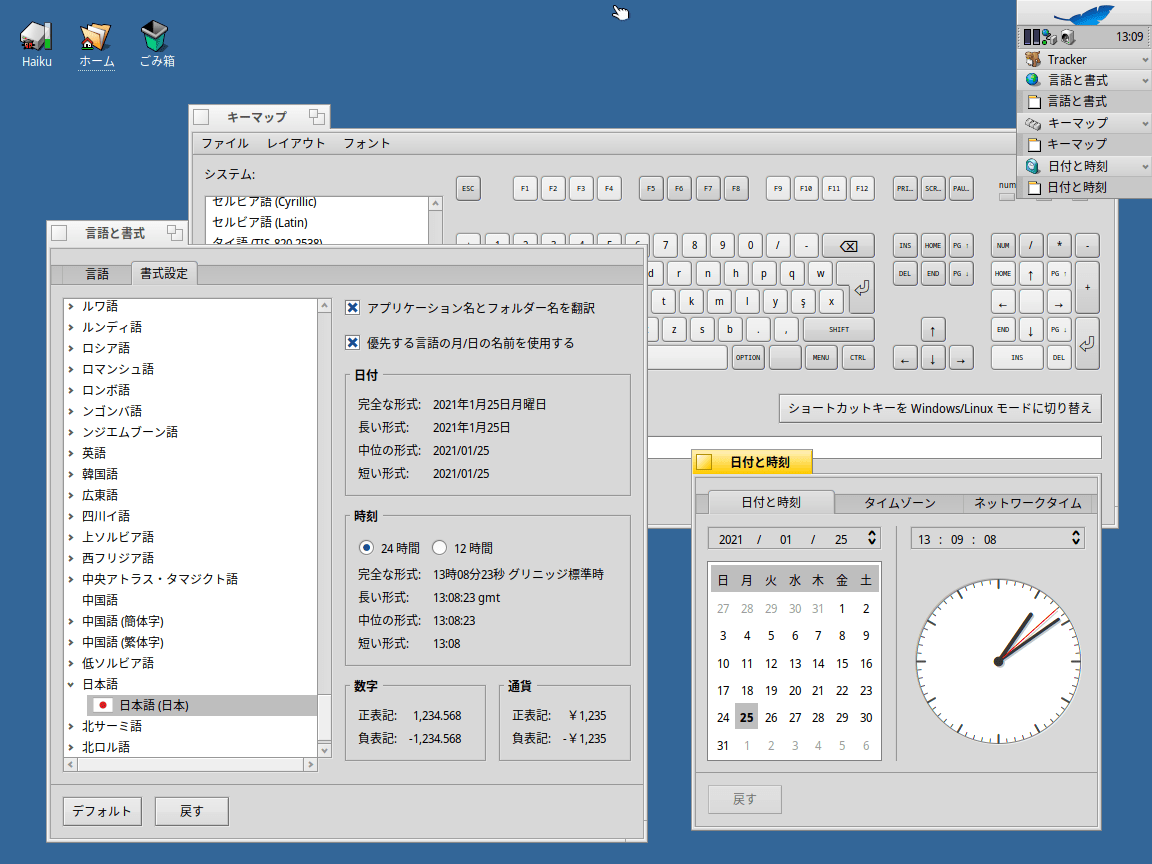The open source operating system Haiku – formerly OpenBeOS – is based on BeOS and uses the hybrid system kernel “NewOS” as a basis. The operating system is binary compatible with the BeOS Release 5.0 introduced in 2000 and thus enables the continuation of the platform that was discontinued in 2001.
Haiku holds BeOS still alive
Haiku R1 Beta 3 can now be downloaded and tried out by anyone and is no longer based on the BeOS source code, but has been rewritten from scratch. The entire haiku project has been supported by a non-profit US organization since 2004. The goal of Haiku is to be able to run old programs specially written for BeOS unchanged and to be able to create new ones in the same way.
-
 Haiku R1 – Installer (Image: Haiku Inc.)
Haiku R1 – Installer (Image: Haiku Inc.)
Image 1 of 5
 Haiku R1 – Installer
Haiku R1 – Installer  Haiku R1 – Installer
Haiku R1 – Installer  Haiku R1 – Localization
Haiku R1 – Localization As part of the Google Summer of Code 2017, the 3D hardware acceleration and support for the Swift programming language for Haiku was developed. A year later, the free office suite LibreOffice was ported, version 7.1 of which is now available for Haiku.
Der modular structure relies on “kits”
The modular structure of BeOS makes it possible that system components for Haiku can be developed independently of each other.
The developers prefer to reproduce the original BeOS components as free software before new developments.
The individual components are referred to as “kits” under Haiku and are represented as follows:
- App/Interface – develops interface kit, application kit and support kit.
- BFS – develops the Be File System, which is almost completely implemented with OpenBFS.
- Game – develops the game kit.
- Input Server – develops the server, the input devices (keyboard, mouse etc.) and their communication with other system areas.
- Kernel – develops the kernel, the heart of the operating system.
- Media – develops the audio server and corresponding APIs.
- Network – writes drivers for network adapters and network-related APIs.
- OpenGL – develops OpenGL support.
- Preferences – implements the options for making settings on the system.
- Printing – works on the printing system and printer drivers.
- Screen Saver – implements the screen saver function.
- Storage – develops the storage kit and drivers for required file systems.
- Translation – develops modules for reading/writing/converting different file formats.
< li> MIDI – implements the MIDI protocol.
The Haiku system kernel is a modular hybrid kernel and a fork from NewOS, a modular kernel written by the former BeOS developer Travis Geiselbrecht alias “travisg”, which also includes a virtual file system (VFS layer) and a, even though it offers rudimentary support for symmetrical multiprocessor systems (SMP).
Try Haiku R1 Beta 3
The 32-bit version Haiku R1 x86 (ISO) and the 64-bit offshoot Haiku R1 x86_64 (ISO) can now be downloaded and tested directly from the manufacturer.
Further information is provided by the release notes as well as the official website of the project, the extensive documentation with corresponding assistance for beginners. The YouTube channel “Riba Linux” has already looked at the free operating system in detail and explained it.